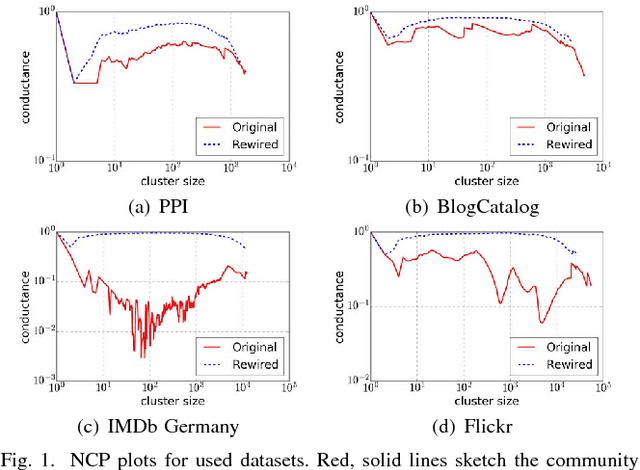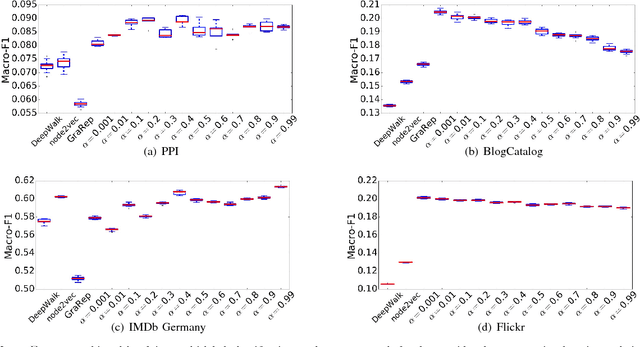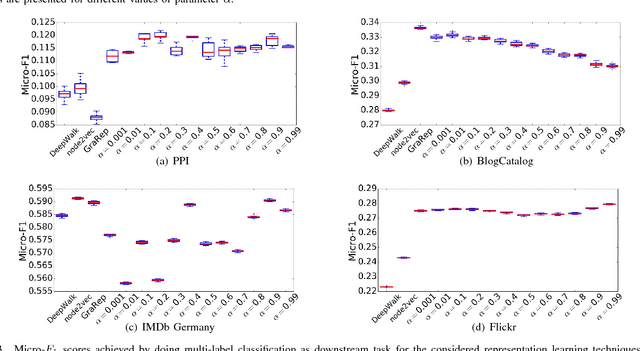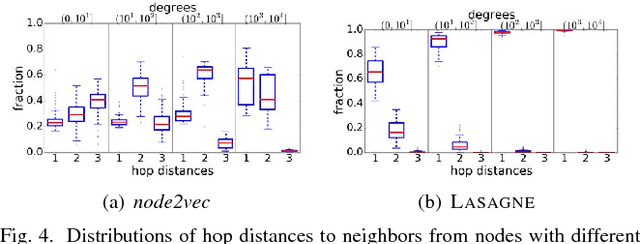LASAGNE: Locality And Structure Aware Graph Node Embedding
Paper and Code
Oct 17, 2017



In this work we propose Lasagne, a methodology to learn locality and structure aware graph node embeddings in an unsupervised way. In particular, we show that the performance of existing random-walk based approaches depends strongly on the structural properties of the graph, e.g., the size of the graph, whether the graph has a flat or upward-sloping Network Community Profile (NCP), whether the graph is expander-like, whether the classes of interest are more k-core-like or more peripheral, etc. For larger graphs with flat NCPs that are strongly expander-like, existing methods lead to random walks that expand rapidly, touching many dissimilar nodes, thereby leading to lower-quality vector representations that are less useful for downstream tasks. Rather than relying on global random walks or neighbors within fixed hop distances, Lasagne exploits strongly local Approximate Personalized PageRank stationary distributions to more precisely engineer local information into node embeddings. This leads, in particular, to more meaningful and more useful vector representations of nodes in poorly-structured graphs. We show that Lasagne leads to significant improvement in downstream multi-label classification for larger graphs with flat NCPs, that it is comparable for smaller graphs with upward-sloping NCPs, and that is comparable to existing methods for link prediction tasks.
 Add to Chrome
Add to Chrome Add to Firefox
Add to Firefox Add to Edge
Add to Edge